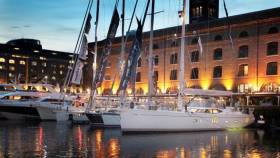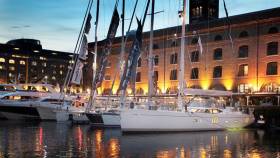Displaying items by tag: London Yacht Show
Rebranded ‘London Yacht Show’ Cancelled For 2019
Organisers of the relaunched London Yacht Show have cancelled the first event that had been scheduled for next month.
Informa Exhibitions took over the former London On-Water Boat Show late last year, rebranding the boutique event as the London Yacht Show, as previously reported on Afloat.ie.
However, the organisers have now cited a slow take-up from some industry sectors, and luxury brands in particular, in their decision to postpone the first show until next year.
The yacht show was set to run from 8-12 May at St Katherine Docks, which hosted London On-Water from 2014 to 2018.
It is the second boat show in the UK’s capital to be cancelled this year, with January’s London Boat Show axed last summer by British Marine due to “insufficient support”.
Boutique Boat Trade Event Gets A Rebrand As ‘London Yacht Show’
#TradeNews - Organisers of prestigious yacht shows in Florida and Monaco have taken over the boutique London On-Water Boat Show and are set to relaunch the brand next May as the London Yacht Show.
As Motor Boat & Yachting reports, Informa Exhibitions will return to the St Katherine Docks venue that has hosted the event for the last five years — with Fairline, Princess and Sunseeker among planned exhibitors from 9-12 May (dates to be confirmed).
And the new show-runners have the backing of Southampton Boat Show organisers British Marine whose own London Boat Show, originally scheduled for next month at the city’s ExCeL, was cancelled over the summer due to “insufficient support”.
Informa promises to retain the boutique nature of the St Katherine Dock event. “We’re not looking to compete with the Southampton Boat Show, this will be a focussed event aimed at the luxury end of the market,” said Andrew Williams, president of maritime for Informa Exhibitions.
Motor Boat & Yachting has much more on the story HERE.































































